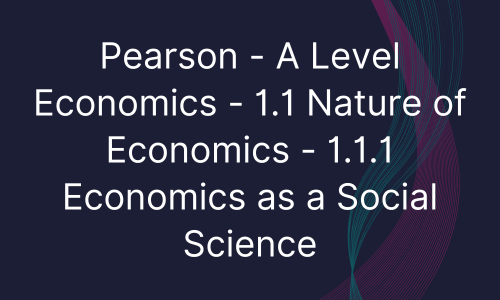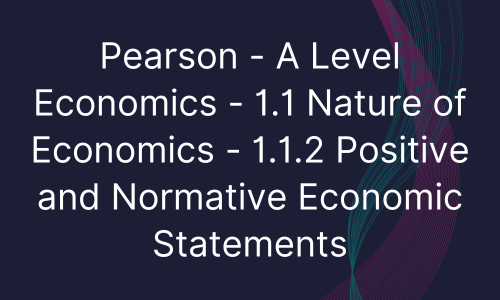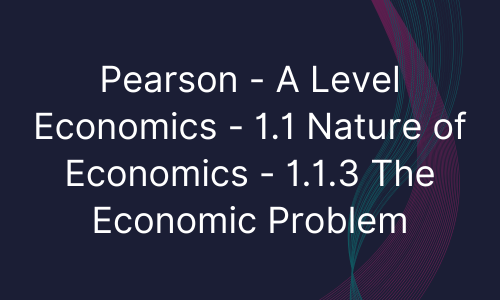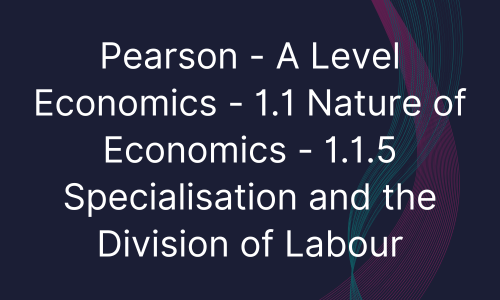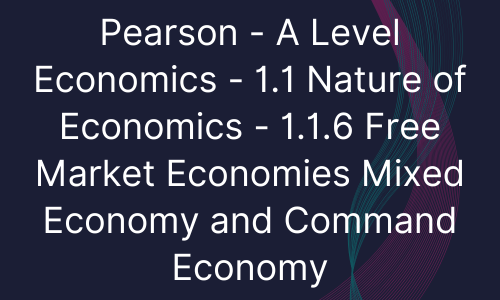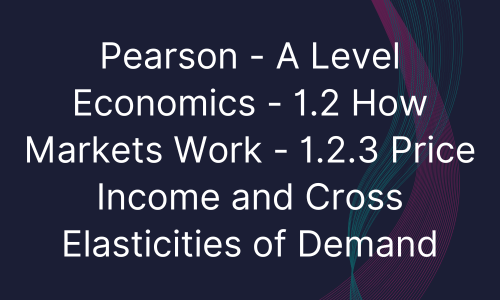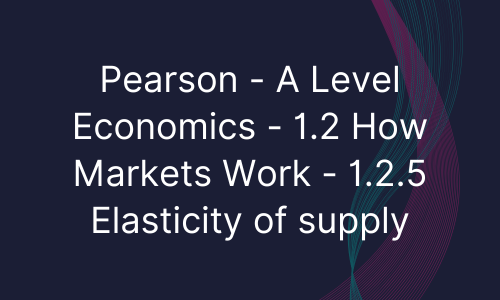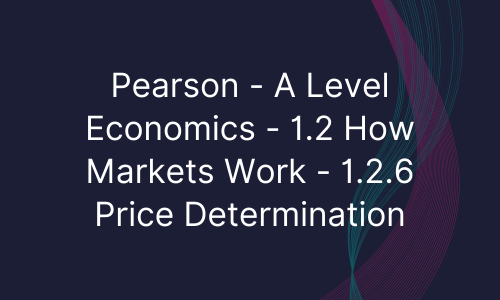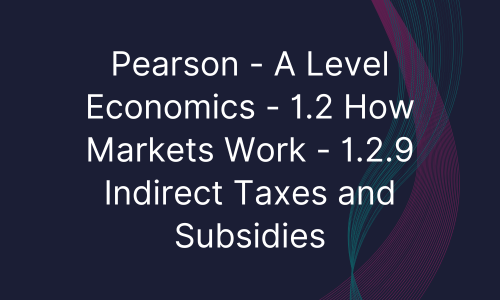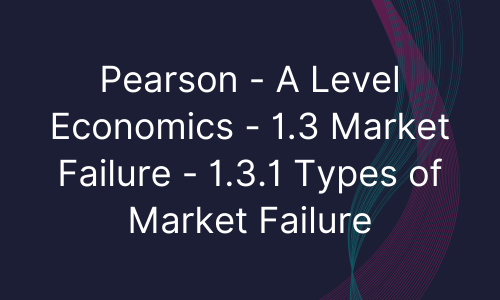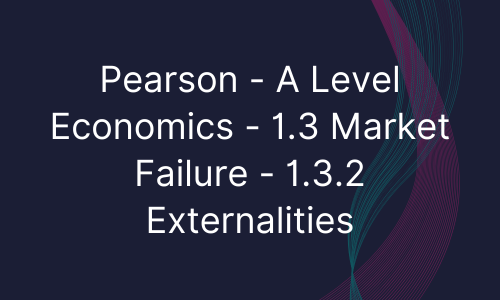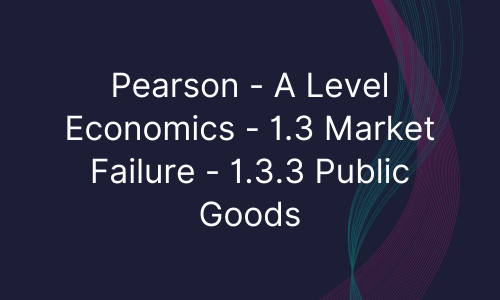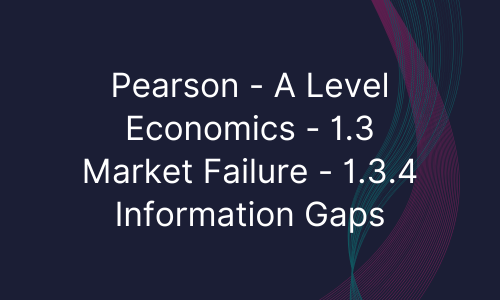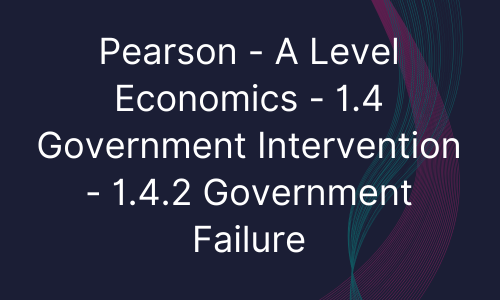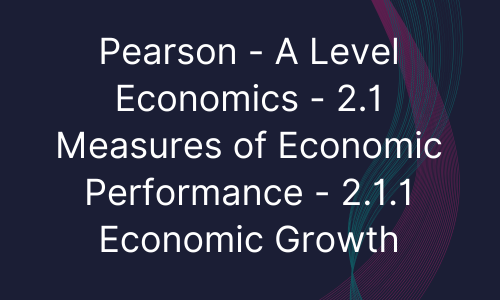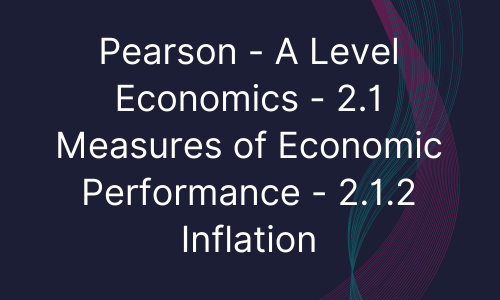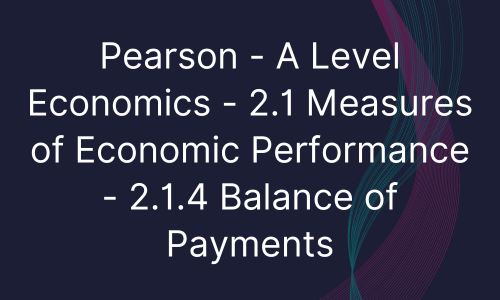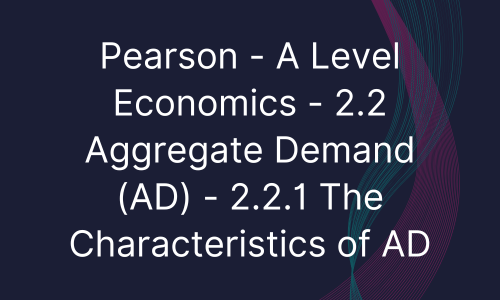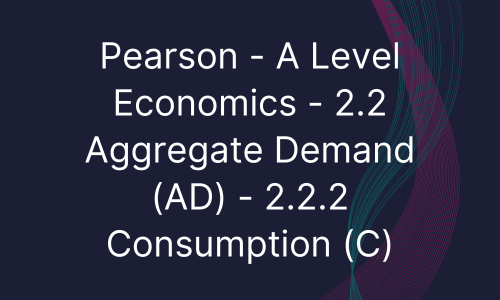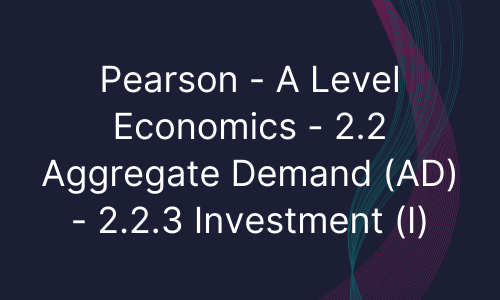Pearson Edexcel A Level Economics (9EC0) Syllabus: Your Comprehensive Guide
Lessons, Resources & Insights
Pearson Edexcel A Level Economics (9EC0) Syllabus: Your Comprehensive Guide
Lessons, Resources & Insights
Welcome to the definitive resource for the Pearson Edexcel A Level Economics (9EC0) syllabus. This page is meticulously crafted for students, teachers, and parents navigating the intricacies of the Edexcel A Level Economics qualification. Whether you’re aiming for top grades, seeking to deepen your understanding of economic principles, or guiding a student through their academic journey, Enterprise Skills provides unparalleled support for the 9EC0 specification.
Why Choose Pearson Edexcel A Level Economics (9EC0)?
The Pearson Edexcel A Level Economics (9EC0) qualification stands out for its rigorous approach to understanding the complex world of economics. This A Level Economics course goes beyond mere memorisation, encouraging critical thinking, analytical skills, and a nuanced perspective on global and national economic issues. It’s not just about learning theories; it’s about applying them to real-world scenarios, making it an incredibly relevant and engaging subject for today’s challenges. Students undertaking the Edexcel A Level Economics syllabus will develop a profound appreciation for how economic decisions impact societies, businesses, and individuals.
Course Structure and Assessment for Edexcel A Level Economics
The Edexcel A Level Economics (9EC0) syllabus is structured to provide a holistic understanding of both microeconomics and macroeconomics. It is typically assessed through three papers: Paper 1 (Markets and Business Behaviour), Paper 2 (National and International Economy), and Paper 3 (Economic Principles and Issues). Each paper requires students to demonstrate their knowledge, understanding, and ability to apply economic concepts, analyse data, and evaluate arguments. The Pearson Edexcel A Level Economics assessment demands not only factual recall but also sophisticated analytical and evaluative skills, preparing students thoroughly for higher education and professional careers.
Skills Developed and Future Pathways with A Level Economics
Studying A Level Economics (9EC0) with Pearson Edexcel equips students with a highly sought-after skill set. Beyond a deep understanding of economic models and theories, students cultivate strong analytical, problem-solving, and data interpretation abilities. These skills are invaluable for a wide array of university courses, including Economics, Business, Finance, Politics, and even Law. Furthermore, an Edexcel A Level Economics qualification opens doors to diverse career paths in banking, finance, government, journalism, and international development. It fosters informed citizens capable of understanding and contributing to economic debates.
At Enterprise Skills, we are dedicated to supporting every student, teacher, and parent through the Pearson Edexcel A Level Economics (9EC0) journey. Our resources are specifically designed to complement the Edexcel A Level Economics syllabus, offering clear explanations, practice questions, and expert insights to help you master every topic. Explore our comprehensive guides, lesson materials, and revision tools tailored to the 9EC0 specification, ensuring you have everything you need to succeed in your A Level Economics studies.
Navigating the Economic Landscape: The Pearson Edexcel A Level Economics A Syllabus
The Pearson Edexcel A Level in Economics A offers a rigorous and stimulating exploration of the economic forces that shape our world. This qualification is designed to develop you into a skilled economic thinker, capable of analysing complex issues, evaluating policies, and making informed judgements. The course is built around four main themes, providing a comprehensive understanding of both microeconomics and macroeconomics, from the behaviour of individual consumers and firms to the performance of the UK economy and the dynamics of the global economic system.
Theme 1: Introduction to Markets and Market Failure
This theme introduces you to the fundamental principles of microeconomics. You will begin by exploring the nature of economics, including the basic economic problem of scarcity, the concept of opportunity cost, and the different ways in which economies can be organised. You will then delve into how markets work, analysing the forces of supply and demand, the concept of elasticity, and the price mechanism’s role in allocating resources. The theme also examines market failure, investigating why markets don’t always lead to efficient outcomes due to issues like externalities, public goods, and information gaps. Finally, you will evaluate the various forms of government intervention designed to correct these market failures.
Theme 2: The UK Economy – Performance and Policies
Shifting to a macroeconomic perspective, this theme focuses on the performance and management of the UK economy. You will learn how to measure key indicators of economic performance, including economic growth (GDP), inflation, employment and unemployment, and the balance of payments. You will explore the components of aggregate demand (AD) and aggregate supply (AS) and use the AD/AS model to analyse the determination of national income and the causes of economic fluctuations. The theme culminates in an examination of the main macroeconomic policies – fiscal and monetary policy – that governments use to manage the economy and achieve their objectives, as well as the potential conflicts and trade-offs between these goals.
Theme 3: Business Behaviour and the Labour Market
This theme returns to microeconomics, providing a deeper analysis of the behaviour of firms and the workings of the labour market. You will investigate business growth, revenues, costs, and profits, and the different market structures in which firms operate, from perfect competition to monopoly. A key focus is on the pricing and output decisions of firms and the role of competition in driving efficiency. The theme also explores the labour market, analysing the determination of wages and the causes of labour market imperfections. You will also examine the role of government in the labour market, including policies to tackle unemployment and inequality.
Theme 4: A Global Perspective
Expanding the analysis to the international stage, this final theme explores the key issues in the global economy. You will study international economics, including the theory of comparative advantage, the reasons for protectionism, and the role of the World Trade Organisation. You will examine the causes and consequences of poverty and inequality and the challenges of promoting economic development. The theme also covers the role of the financial sector, including the causes and consequences of financial crises. Finally, you will analyse the role of the state in the macroeconomy from a global perspective, considering the challenges of managing economies in an interconnected world.
A Qualification for the Future
The Pearson Edexcel A Level in Economics A provides you with a powerful analytical toolkit that is highly valued in higher education and the professional world. You will develop the ability to think critically, solve complex problems, and communicate your ideas with clarity and precision. This qualification opens doors to a wide range of degree courses and careers in fields such as finance, business, law, and public policy. Our resources are expertly designed to guide you through the syllabus, helping you to build a deep and lasting understanding of economics.

